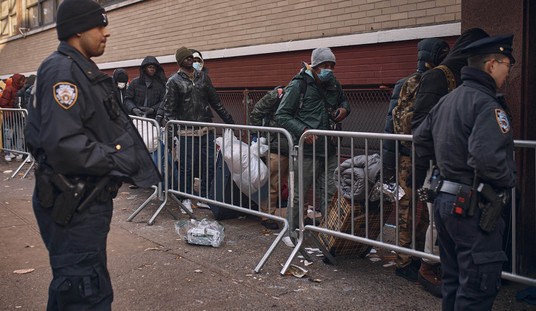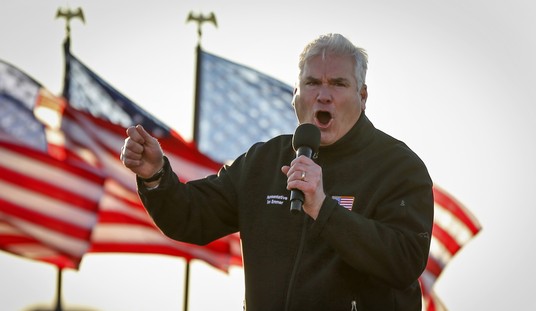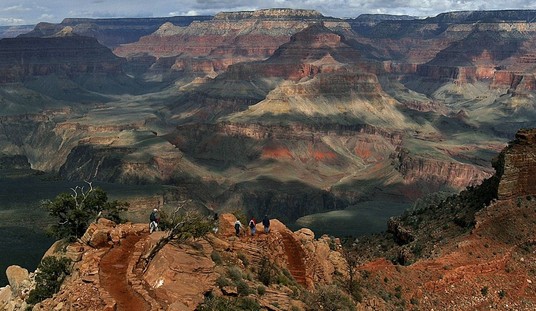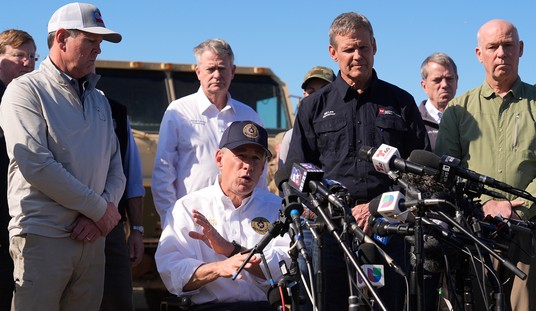On Monday, the Supreme Court held hearings on an overreach of executive power in a fight between the branches of government over presidential appointments. Today they tackle a thornier issue between public safety, the First Amendment, and preferential treatment of speech. Massachusetts passed a law (as did several other states) requiring a buffer zone between abortion clinics and protesters that pushed the latter at least 35 feet away from the facility in order to demonstrate and conduct “sidewalk counseling” to prevent abortions. The protesters claim that the buffer zone violates their First Amendment rights because it privileges their opponents in relation to the positioning of the protests.
At issue is not just the state law, but also an earlier Supreme Court decision that upheld a similar law in a different context:
Anti-abortion protesters challenged the law, saying it violated their freedom of speech rights under the First Amendment of the U.S. Constitution by preventing them from standing on the sidewalk and speaking to those entering clinics. The protesters say their main aim is to counsel women in an effort to deter them from having abortions.
The 2007 law, which amended an existing statute, restricted conduct outside abortion clinics by introducing a 35-foot (11-meter) no-entry zone that allowed only patients, staff, passersby and emergency services to enter.
The Reuters write-up misses an important argument in this case, which Politico noted on Monday and I linked previously (emphasis mine):
The Massachusetts law set up the 35-foot zone around abortion clinics. The only people who can enter are those going to and from the clinic, passersby and employees of the clinic and their “agents” conducting official business.
That last exemption, McCullen’s lawyers say, allows Planned Parenthood employees and escorts to operate within the buffer zone but denies access to the protesters. That unequal prohibition on speech, they say, is unconstitutional.
“Massachusetts’s statute allows only employees and agents of abortion clinics to speak, and it isn’t hard to guess what their viewpoint on abortion is,” wrote 11 attorneys general, led by Michigan’s Bill Shuette, who support McCullen’s case. “When the government draws distinctions based on viewpoint, it has gone too far.”
The decision will come down to whether the law essentially privileges one side and whether it is a rational response to serve the state’s pressing interest in preventing violence. The violence was rare in the first place and became more rare over the last twenty years, and the amount of distance in this law may have the court inclined to consider whether the state intended to handicap the pro-life message.
Still, don’t expect miracles in this case. The precedent from 14 years ago, Hill vs Colorado, will weigh heavily in the court’s collective mind, but there are a couple of differences. The Colorado law upheld by the court restricted demonstrations to a zone 100 feet outside the clinic, but only prevented individuals from coming within eight feet of those entering or exiting the clinics — well within hearing range. The decision relied heavily on that point to find Colorado’s statute “content neutral,” which allowed the court to uphold the statute. If the Massachusetts statute forbids any protesters from approaching at all past the 35-foot line, that could be a big issue for content neutrality. Second, the passage of time without regular eruptions of violence could erode the case for a pressing state interest in barring political speech from public property around abortion clinics in particular, which could also have the court considering whether these restrictions are actually “content neutral” at all.
The safest bet in this case is that the court will split on it — it went 6-3 for Colorado in Hill — which means we won’t see a decision until May or June. The questions from the Court today will be interesting to see what they’re actually considering, but don’t take skepticism itself as an indicator of which direction the Court will move.
Update: Apparently the session did not go well for Massachusetts’ attorneys:
The Supreme Court seems likely to strike down a Massachusetts law setting a 35-foot protest-free zone outside abortion clinics.
Liberal and conservative justices alike expressed misgivings about the law during arguments at the high court Wednesday. They questioned the size of the zone and whether the state could find less restrictive ways of ensuring patient access and safety.
Again, don’t read too much into this, as the questions from the justices would have to take the form of skepticism over the law in order for Massachusetts to answer the complaint. But these are the grounds on which this case differs from Hill, and that’s probably going to be where this case gets decided.








Join the conversation as a VIP Member